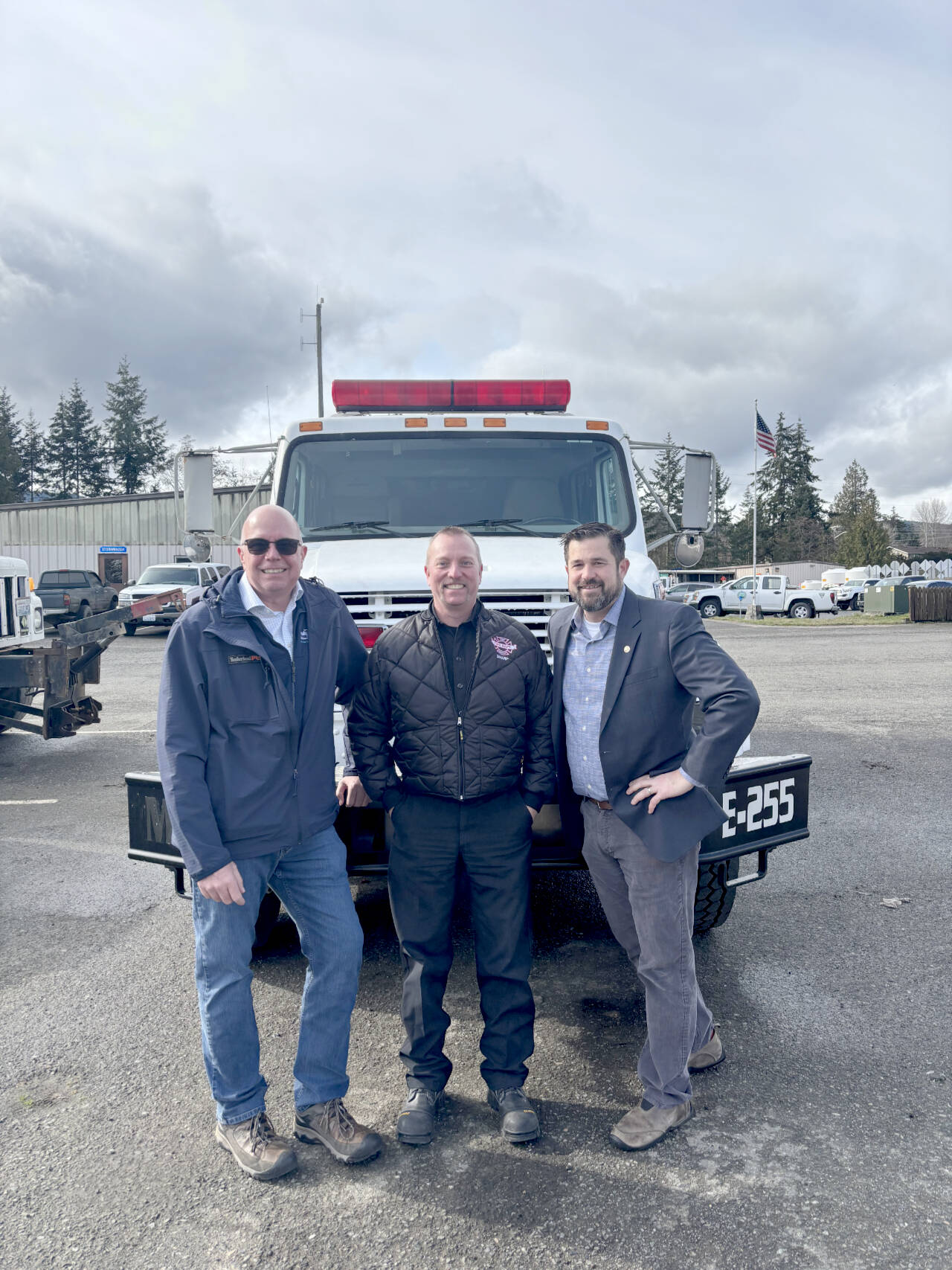PORT ANGELES — Through partnership with the Port of Port Angeles, the Port Angeles Fire Department has purchased a used fire engine to aid in fighting forest and grassland fires.
The engine cost $7,500, which is $2,500 less than its listing price. It was paid for by funds from the fire department’s Equipment Services account, which plans for apparatus replacements, Fire Chief Derrell Sharp said.
Today, the in-kind price for a similar unit would be between $400,000 and $600,000, Sharp said.
The truck, a 1998 wildland urban interface fire engine, has a 500-gallon water tank and pump and roll capabilities. It enables fire crews to apply water streams while on the move, and the vehicle is better equipped to navigate narrow roads, according to a press release.
In the case of a wildland fire involving brush and timber, the city said, “the ability to deploy a wildland urban interface engine has many advantages over deployment of a structure engine.”
Those include higher ground clearance, a tighter turning radius, lower transmission gearing and designated space for wildland hose, appliances and hand tools.
“It is imperative that we switch up equipment needs throughout our community to make sure that we are prepared,” City Manager Nathan West said during his State of the City address last week.
The seller, an out-of-state fire department, had listed the engine for sale due to a lack of time to teach seasonal crew members how to drive a manual transmission.
“The fire crew in Port Angeles has the time and expertise to do just that,” the press release stated.
This is the Port Angeles Fire Department’s (PAFD) first engine of this type. It will be able to respond to wildland and urban interface fires, as well as smaller natural vegetation fires that frequently occur on Ediz Hook and throughout the city, Sharp said.
Last year, the department responded to more than 30 brush, grass or natural vegetation fires, Sharp wrote in an email.
Acquiring one of these engines has been part of the department’s long-range strategic planning discussions, in alignment with the prioritization of wildland and urban interface response capabilities, Sharp said.
It was the partnership with the port, however, that helped accomplish the goal sooner than anticipated.
The city was alerted to the engine after Paul Jarkiewicz, executive director of the port, noticed it for sale on a government surplus site. At that point, Sharp didn’t think the city was poised to buy it, as the department was not registered on the surplus site and the engine would likely sell before the paperwork could be completed.
Recognizing those roadblocks, the port bought the fire truck and was reimbursed by the city.
“[A] major step in the way of partnership, as well as getting that below value,” West said.
________
Reporter Emma Maple can be reached by email at emma.maple@peninsuladailynews.com.

